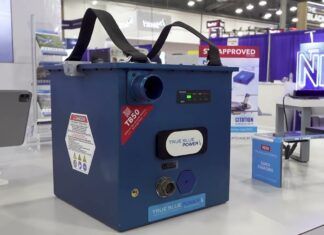In keeping with its cutting-edge ethos, Pipistrel has two ambitious electric-flight projects in the works. We covered the Panthera electric/hybrid project in the July 2014 Aviation Consumer and last fall, the company announced an electric version of the Alpha.
(Photos: Jean Marie Urlacher.)
The prototype for what will be the Alpha Electro is called the WATTsUp. Pipistrel’s innovative energy has caught the eye of the giant German electrical and electronics concern, Siemens AG, which is providing a high-power, light direct-drive DC motor for the electric Alpha.
The motor weighs only 31 pounds (14 kg) and has a maximum power output of 60 kW or about 80 HP, same as the gasoline model. Pipistrel’s Tine Tomazic says that’s by intention. The company wants the Alpha Electro to be identical in performance and load capability to the gasoline version.
As we go to press, the WATTsUp had about 55 hours of testing and Pipistrel expects to make a formal product announcement in Aero in April.

The biggest technical challenge to practical electrics remains battery capacity. Tomazic says the WATTsUP is meeting its design goal of about 90 minutes of endurance with quick-change battery modules weighing a total of 126 kg or 277 pounds. Add it all up, the Alpha Electric will have a useful load of about 173 kg or 380 pounds.
With its limited endurance, the Alpha Electro is envisioned to be an airport trainer dedicated mainly to pattern work. Pipistrel thinks it should supplement a school that has a gasoline trainer or two. Although the batteries are quick change, Tomazic said it may make more sense for a school to have two electric airplanes sharing one set of spare batteries or to simply charge the batteries in place, which would require about 45 minutes. Pipistrel is aiming for a price of under €100,000, or about $119,000 at current exchange rates. We hope to fly the airplane later this year. (Photos: Jean Marie Urlacher.)

